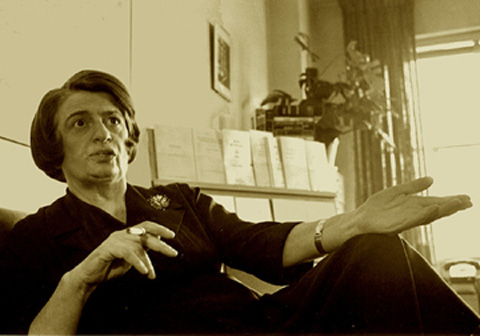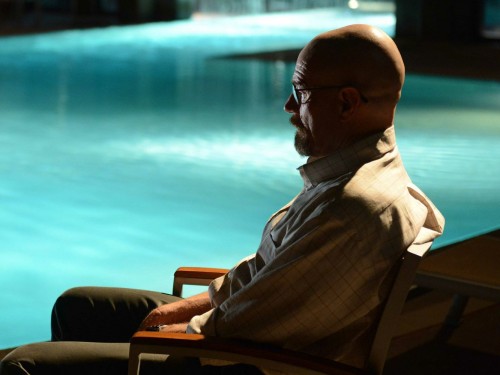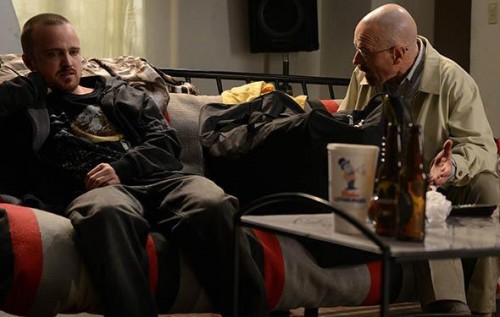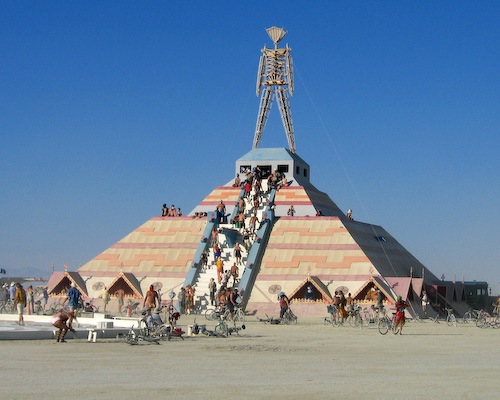
1. For starters, Grand Theft Auto V is out! (If you need a strong case for dabbling in it, go here). Kill Screen posted a doozie of a review, provocatively titled, “Grand Theft Auto 5 channels the violent, lonely minds of men, especially mine“, ht SZ:
I shudder with recognition… at the bleeding edge of reality in Grand Theft Auto V. I am both delighted and disturbed by how much I see elements of myself, and of everyone I know, in the narratives of the three protagonists: Michael, Franklin Clinton and Trevor Philips.
That statement doesn’t look too good, for my health or for those I know, does it? You can put the phone down. Let me explain…
Why do I enjoy playing as these men? Why do I understand them? Why is violence their only option? Why does chaos feel beautiful and true to me over the course of my play? How does this world get me to believe that what I am doing is just the way it is? How do I better understand where violence takes root; why does it feel meaningful and intentional, rather than mindless and pointless?…
There is a whole refugee camp of men—like Lester, like conspiracy theorist Nervous Ron—living in the liminal space between acceptability and exile, men who can’t hold it together, who can’t buy in, who can’t believe in the great lie of the American Dream. “We’ve been lied to!” they all yowl, separately and in their own way. Their frustrations and impotence form a cloud, a hazy funk around them. Someone, they all seem to say, someone out there has to pay for the state my life is in…
GTAV best illustrates the difficulty of self-reflection, of all the small ways we fail ourselves and others, each and every day. These men can only get lost in the passion fever of violence, the lull of avoidance, the embrace of a city that consumes them.
Again, paralleling yesterday’s Nirvana article, it’s difficult to figure out whether hyper-violent games contribute to cultural violence or vice-versa. I remember being at the beach in 2001 when GTA 3 came out – and the six-year-old son of the people we were staying with kept sneaking upstairs to play! All that to say, there’s an unwelcome whiff of social engineering in the people who decry these games – I mean, I wouldn’t let my six-year-old-play, but still, we have to assume there’s more anthropology involved – that is, GTA V makes a lot more sense when our ‘nature’ is understood in a Romans 1, 2, or 7 kind of way.
But the Kill Page article really nails the ‘nurture’ side of things, too, examining violence in whatever complex causal relation it has to stifling expectation, in this case the expectations for American men. ‘Frustrations and impotence’, the writer says, with helpless prayer or pseudo-cathartic violence as reactions to the same claustrophobia of law, and our usual choice of the latter is a matter of tragic almost-necessity. The experience of playing the game itself offers one of these quasi-cathartic violent experiences, and I think there’s a good argument to be made (implicit, perhaps, in the article) that games like GTA arise partly from the pressures of the American Dream, perpetually deferred in practice.
And if non-gamers are having difficulty relating, here, check out a recent article on USA Today, reporting (surprise, surprise) that “Anger is the Internet’s most powerful emotion“.
2. In the area of consumer media, luckily we can all temper our Grand Theft Auto instincts with some One Way Love, now available on Amazon! (cheesy transition, but when is grace not?) In a passage from our friend Tullian Tchividjian’s (fantastic) new book, posted on Liberate this week, Tullian tells an extraordinarily touching, and deeply courageous, story from his life about the shame of expectation and the freeing power of love:
I’ll never forget when [my fiancee] Kim came over to my apartment one night after work and told me she was pregnant. I was devastated. Not just because the news was a shock or because I hadn’t expected to be a parent at such a young age. I was devastated because everyone who had celebrated my return “to the fold” would think the turnaround was a false alarm. I had caused my family so much pain and heartbreak with my self-absorbed shenanigans, and they had been so relieved and excited that their reckless son had finally come back; it had been the answer to years and years of prayer. I had put my parents through more than any son ever should and had asked for their forgiveness on numerous occasions. To drop this bomb might crush them all over again, and I just couldn’t bear it. I was scared, ashamed, and angry at myself for failing yet again.
Somehow we summoned the courage to go over to my mom and dad’s house the next day—Mother’s Day, believe it or not. After some awkward small talk, I asked my father if we could speak to him alone. We walked out to the driveway. Dad was standing in front of me, and Kim was by my side, shoulder to shoulder. “Dad we have something to tell you.” I burst into tears. “Kim’s pregnant.” Kim started bawling too. Next thing I knew, he was embracing both of us, me with one arm, her with the other, while we wept. He held us for ten minutes. He could see how overwhelmed we were. I can still hear his voice telling us, “It’s okay. We love you. It’s going to be okay. This child is going to be a blessing.”
…The whole situation was wrapped in grace: I deserved his reproach and disapproval—premarital sex resulting in unexpected pregnancy is no father’s dream for his child—yet his gracious response assured me that he not only wasn’t crushed, his love for me was stronger than ever. When I told him (through many tears) how sorry I was for once again letting him down, he simply hushed me by hugging me tighter and saying over and over again, “It’s okay. I love you. It’s okay. I love you.” At that moment in the driveway, when I rightly deserved my dad’s disappointment, he assured me of his delight. Even now it is hard to put into words the emotional relief I felt. Lifesaving is not too strong a word. I thank God with every fiber of my being that He put me in a family where I was surrounded by such one-way love.
The love my father showed me that day is not a one-to-one approximation of God’s one-way love for you and me—nothing is! But this act of grace served as an accurate reflection of that one true Act of Grace, or one way love, to which all others point. That is, he treated me in a way that was analogous to how God treats you and me. He was not God, of course, but like many fathers, he did play a similar role in my life: someone in authority who showed me love in the midst of deserved judgment. And like that One True Act of Grace, my father’s forgiveness and love changed me forever.
3. Also on a serious note, Relevant magazine posted an excellent article attacking the old myth that “God won’t give you more than you can handle.” It touches on the expectation that sufferers often feel (and Christians are no different; we just cloak the law in theological language) to move beyond it, to somehow “deal with it” in a productive way. There’s a bit of excess choosiness in the article, with regard to will, but also tremendous comfort for those suffering from the expectation to “move on”, ht LP:
That tired, old phrase often sounds more like a taunt than a comfort. When we are down and out and feeling discouraged, hearing those words can cause us to feel like we are not measuring up. It causes us to ask, “If I am supposed to handle this, then why can’t I handle it?”…
The night before Jesus was executed, He cried out in the garden, “My soul is overwhelmed with sorrow to the point of death” (Matthew 26:38). Jesus told His father, “This is too much for me!” We see this kind of thing in the Psalms, too. The Psalmists ball their fists in rage, and shout at God, “Why have you forsaken me?” (Psalm 22) In their sadness they say, “darkness is my closest friend” (Psalm 88).
What these verses teach us is that it’s OK to feel like we can’t handle it, like we are going to give up. We can cry out, “My soul is overwhelmed to the point of death.” And when we do this, we find God—the one who, in the person of Jesus, suffers with us.
When we become aware that life will give us more than we can handle and come to grips with this, we find a promise: God is faithful to meet us in the mess and in the pain… And when He does, we learn to recognize our constant need to depend on Him.
4. But we do tend to be pretty self-helpy, on average. In that vein, The New Yorker published a list of classic books with modern subtitles. I’ll list off a few favorites:
“Job: How I Lost Everything and Found God”
“John: Seven Surefire Signs That Your Friend Is God”
Augustine’s “Confessions: How I Stole, Womanized, and Worshiped a False God, and Still Became a Saint”
Dante’s “Inferno: Hell Is Real”
Montaigne’s “Essays: Why Marriage Is Like a Cage, and Other French Witticisms”
Shakespeare’s “King Lear: Estate Planning Essentials for You and Your Heirs”
5. Also in humor, The Onion’s recent article “Facebook Version of Marriage Going Great” pretty much speaks for itself; a Telegraph article we missed from last month, authored by an atheist, alleges that Richard Dawkins is a deep-cover mole for Organized Religion; and finally, in a wonderfully ironic turn of events, the AV Club reports on the Randian produces of Atlas Shrugged started a Kickstarter campaign, relying on charity to further their anti-altruistic agenda. This one’s too good not to quote:
…despite the free market repeatedly determining it would rather not have any Atlas Shrugged movies, producers Harmon Kaslow and John Aglialoro boldly refused to relinquish their rational self-interests to a world that would dare take their ideas from them, chiefly by not paying to see them. And because of their indefatigable commitment to film Atlas Shrugged: Who Is John Galt? by the fall—and thus propagate its titular character’s manifesto to “never live for the sake of another man, nor ask another man to live for mine”—Kaslow and Aglialoro have turned to asking other men to give them $250,000…
“The Atlas Shrugged Kickstarter campaign is of course a voluntary value-for-value exchange. You are not obligated to contribute,” it says, reassuring you that donating your money to a wealthy Hollywood producer and fitness equipment magnate who definitely don’t need it still qualifies as supporting rugged individualism, because you ruggedly, individually made the choice to do so, rather than out of some sense of subservience to a larger ideology.
Ha! This really is completely absurd, in almost every possible way.
6. In the culture-sphere, adding to our recent Breaking Bad coverage, Lloydville at Mardecortesbaja chimes in on the “Kingdom of Dread” that Vince Gilligan has built for Walt and his (reluctant, fascinated) viewers:
What you marvel at is the momentum of dread that builds and builds relentlessly — often in improbable or unlikely ways but with the inescapable logic of a bad dream. It’s something different from the carefully doled-out surprises and frissons of an engaging soap opera or crime thriller. It’s soul-wracking…
This life of perpetual hell is not like the life most of us lead, but it’s the life we habitually fear, because we know that we could stumble into it by chance, by a succession of bad breaks, and that each of us will have passages through that kind of hell sooner or later, despite all our efforts and all our virtue and all our careful planning…
The series of events is not, as I say, plausible, strictly speaking, anymore than being chased by lions in a dream is plausible, but it feels plausible the way being chased by lions in a dream feels plausible. The events embody unconscious terrors, the ones we don’t want to think about in waking life…
Grace can be known through this series precisely by its absence — like the piece of a jigsaw puzzle that’s missing from the dead center of the puzzle, its shape clearly defined by a void.
I watched most of the series in a set of marathon viewings over the course of a week or so. I was disturbed that I was starting to sympathize with its protagonist Walt — this made me feel a little loopy, a little paranoid. But then I had an even more disturbing revelation — I am Walt, and so are all of us. We are all capable of his mistakes, his sins, his moral bewilderment, his weakness, his humiliation, his rage. We all need a pardon for unpardonable things, and it’s a pardon we’re not likely to find in this world…
So then . . . back to grace. Always back to grace. Maybe the grace we need doesn’t exist — maybe that missing piece of the jigsaw puzzle was never included in the box, maybe it was never even manufactured. Still, the empty outline of it is right there in front of us, haunting and maddening — the key to something.
7. Finally, for further reading, be sure to check out Nick Lannon’s wonderful piece for Liberate on Burning Man, a week-long event in Nevada dedicated to self-expression, self-reliance, and non-judgment – one that, like another institution I’m more familiar with, finds non-judgment, in practice, much easier said than done. For more Breaking Bad, Slate.com has rounded up all the misfortunes of Jesse Pinkman (reminiscent of poor Chris Brody in Homeland). An ex-monk is in the middle of what looks to be a pretty cool DIY cathedral, and, for more pastoral/psych-y readers, The American Conservative posted prayers for different Myers-Briggs types.

COMMENTS
Leave a Reply

















